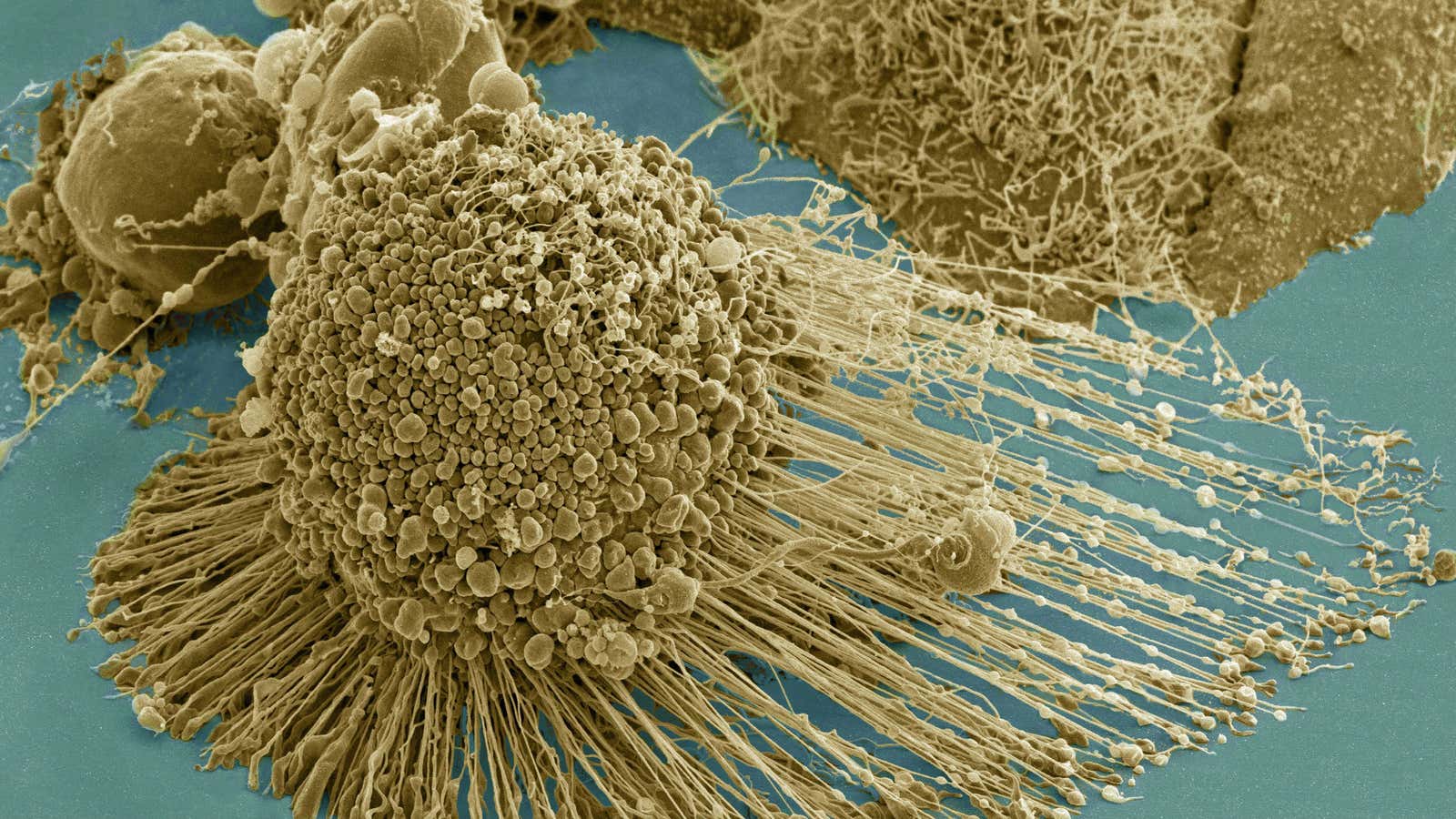“Two thirds of cancers are due to bad luck,” or some variation of this, is the cancer-related headline of the moment.
It comes from a newly published paper in the journal Science. The study, by Bert Vogelstein and Cristian Tomasetti of Johns Hopkins University, used mathematical models to look at the mutations occurring during stem cell divisions within 31 types of body tissues. What the researchers found is that, in two-thirds of the tissues observed, what determined a mutation was chance over other causes, such as environmental factors or inherited predispositions.
But this does not equal to saying that two-thirds of cancers are due to “bad luck.”
Cell mutation alone doesn’t explain the development of cancer. As explained in Science:
The line between mutations and cancer isn’t necessarily direct. “It may not just be whether a mutation occurs,” says Bruce Ponder, a longtime cancer researcher at the University of Cambridge in the United Kingdom. “There may be other factors in the tissue that determine whether the mutation is retained” and whether it triggers a malignancy.
Notably, some types of tissues associated with cancer that are often linked to lifestyle habits—skin and lung, for instance—did show an increase in mutation as a consequence of environmental factors (essentially confirming that quitting smoking and avoiding excessive sun exposure are very good ideas). Further, the study didn’t include two of the most common cancers, breast and prostate. Tomasetti himself had this to say:
“I’m not claiming any cancers, overall across the population, are the result of pure chance,” Tomasetti told the BBC. “But what I am claiming is there are some tissues—for example blood cancer—where there is very little evidence of any hereditary or environmental factor.”
Sensationalistic headlines aside, the possibility that randomness may have a stronger role in cancer than commonly believed could have an effect on cancer patients.
Commenting on the study, Hans Clevers, a stem cell and cancer biologist at the Hubrecht Institute in the Netherlands, told Science that there is a positive side in highlighting the role randomness could play in the processes that have links to cancer.
The new framework stresses that “the average cancer patient … is just unlucky,” Clevers says. “It helps cancer patients to know” that the disease is not their fault.




